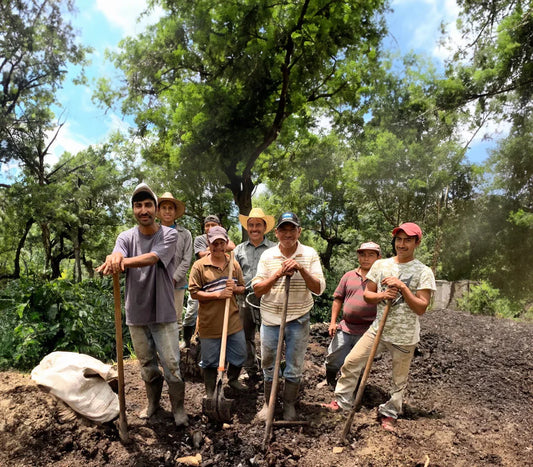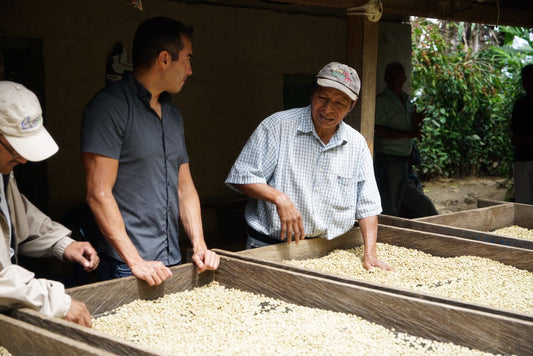
Beyond Taco Shirts: The Truth Behind Hispanic Heritage Month Marketing
Denisse Coquet speaks to Lea Landaverde about the problem with marketing along stereotypical cultural lines during Hispanic Heritage Month – and every other day of the year.
Jump to:
DC Comics did it. The NFL did it. McDonald’s did it. A well-known household brand even proclaimed that their toilet paper had "gone Latino" during one Hispanic Heritage Month (HHM) ad campaign.
Suffice to say, many companies' marketing efforts targeting Latinos during Hispanic Heritage Month have gone very wrong.
That's because, as Lea Landaverde, activist and founder of The Riqueza Club, a holistic wealth services company that serves first-generation, immigrants, queer, BIPOC and women, explains: "We are more than just a taco shirt or a celebration of Mexican culture."
How Hispanic Heritage Came to Be
Hispanic heritage has been celebrated in this way in the US since 1968 when President Lyndon Johnson started Hispanic Heritage Week. It was later expanded to a month by President Ronald Reagan, who promulgated it on August 17 1988.
Since then, HHM has been celebrated annually from September 15th (to coincide with the independence days of Costa Rica, El Salvador, Guatemala, Honduras and Nicaragua) to October 15.
While the event aims to commemorate the cultures, contributions and American citizens whose ancestors came from South and Central America, Mexico, the Caribbean and Spain, these intentions have been hijacked in recent years.
That’s because what started as a celebration and reminder of how much strength the US draws from its immigrant roots, has slowly turned into a huge campaign involving a bevy of big companies, brands and organizations.

Why Are Companies Targeting Hispanic Heritage?
With Latinos making up 19% of the population and with an estimated $1.9 trillion in buying power, it's understandable why companies would want to target us.
But currently many companies seem to be using HHM solely as a marketing tool, forgetting (or ignoring) the original purpose of the celebration.
This doesn't only happen to HHM though; other events dedicated to specific communities, such as Pride Month or Black History Month, are being turned into marketing collateral too.
"Of course, it's a good marketing strategy to target those communities and showcase allyship," Lea says. "But, most of the time it’s not just allyship, it's how they make more money too and don't truly support or give back to our communities."
Many businesses also miss the mark completely because they fail to see the different cultures the Hispanic community is made up of.
In fact, some marketing efforts are downright insensitive to the point of using sombreros or tacos in the hopes of drawing in Hispanic consumers. They simply see it as a chance to reel in extra business, explains Lea.
Many have accused companies who engage in this of bluewashing: the practice of using misleading marketing strategies that exaggerate a company's true commitment to a social practice to attract consumers.
And many consumers have caught wind of this. According to a recent survey, 46% of people think HHM-focused marketing campaigns are pandering, while 38% believe it is mere window dressing.
These types of campaigns do not only mislead some consumers but can harm celebrations such as HHM as it detracts from the true objectives of the event.

Cultures Should Be Honored All Year Round
"Latinx individuals are the fastest growing population in the US, of course, brands want to target us, we bring in business," Lea says.
"But no matter how much business we bring in, those profits aren't being channeled back into our communities, so things need to change. Brands should do more than just sponsoring a Latinx creator or business or creating merchandise for people to purchase."
She explains that this can be done by employing people of color or queer identity and paying them well, celebrating and honoring the various cultures of the people who work for a business within that business, doing DEI training and giving back to communities through non-profits and charities so that "Latinx culture is honored all year round".
"At this moment, we have Latinx immigrants at the border and a majority of Puerto Rico is still without electricity or water after the hurricane, yet no corporation is talking about that," says Lea.
"It's not that hard to be a true ally, especially when you have money. When one has the funds, one holds the power to drive change. So instead of doing all that talking, marketing, and promoting, do the work."


